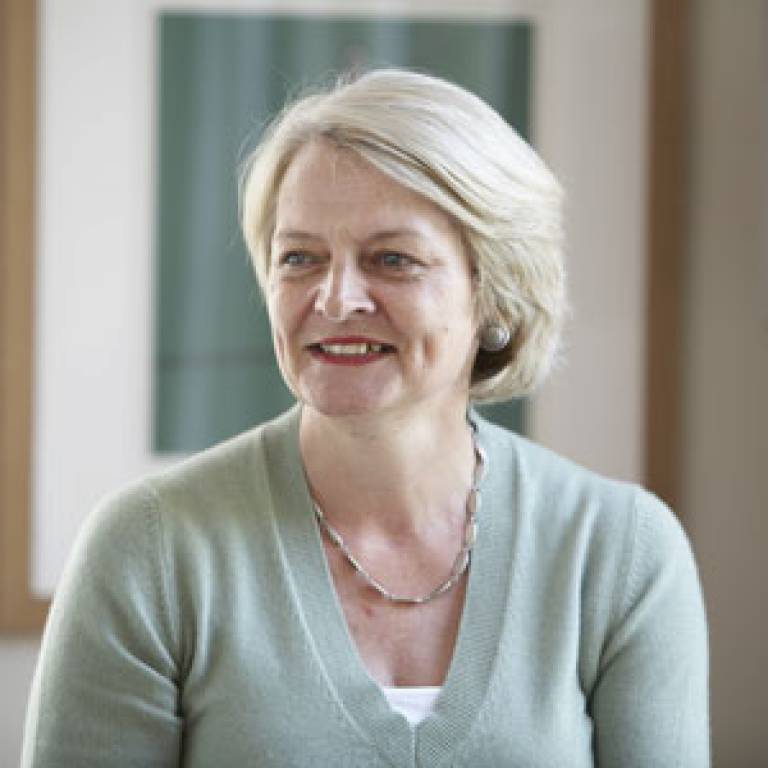Prominent social theorist to head new UCL Institute for Global Prosperity
15 May 2014
A bold bid to uncover an alternative to the current failed model of economic growth is being launched via the establishment of a new UCL Institute for Global Prosperity, led by the renowned anthropologist Professor Henrietta L.
 Moore.
Moore.
The appointment of eminent feminist author and social anthropologist Professor Moore to the new Institute will define prosperity as beyond merely economic growth - it will consider wellbeing, happiness, and quality of life in equal measure.
The institute will become part of The Bartlett, UCL's Faculty of the Built Environment in October when Professor Moore joins UCL. It will examine what sustainable lifestyles will involve for societies across the globe and how they can be developed and maintained in the face of environmental pressures, economic crises and social conflicts. It will focus its efforts on understanding how local, national and global institutions can be transformed to promote the efficient use and sharing of our resources, technologies, knowledge and capital at all levels.
Professor Michael Arthur (UCL President & Provost) said: "I'm very pleased to welcome an academic of Professor Moore's calibre and experience to head up this landmark initiative at UCL. We already have scholars from a broad range of disciplines working on this pressing issue; the UCL Institute for Global Prosperity will draw together this expertise in a bid to further understand long-term prosperity and wellbeing, and how it can be achieved."
Global prosperity is the biggest challenge of our age. We have unsustainable levels of inequality - causing contrasting damage in different parts of the world.
Professor Henrietta L. Moore
With initial research units based in London and Africa, the Institute aims to stimulate original debate on new models for economic, social and cultural prosperity, develop innovative multidisciplinary research, and help to shape the education of the next generation of business, civil society and government leaders on a global scale.
The Institute will bring policymakers and practitioners together from across disciplines, alongside world-class researchers to develop collaborative approaches to the challenge of prosperity. It also aims to make the integration of non-academic knowledge and expertise an important aspect of its work, with the integration of entrepreneurs, civil society activists and ordinary citizens as co-producers in research and problem solving a key aim.
"Global prosperity is the biggest challenge of our age", said Professor Moore. "We have unsustainable levels of inequality - causing contrasting damage in different parts of the world. It is urgent that universities address this problem in radically new ways, as they are the only ones who have the capacity and the full range of resources to do so - they need to take the lead to urgently ramp up the level of debate and action."
She added: "The bottom line is that people are losing control of the resources they currently use to sustain themselves, which means we need to think differently, and fast. We need to ask what are the real alternatives?"
Professor Moore is joining UCL from the University of Cambridge where she is William Wyse Chair of Social Anthropology and a professorial fellow at Jesus College. She is Chair and co-founder of SHM Productions, a research a strategy consultancy that investigates ways to boost innovation in the public and private sectors by engaging with academic research; and a trustee (and founder) or the SHM Foundation, an organisation that works globally for positive social change in the areas of learning, citizenship, health and the arts.
Alan Penn, Dean of The Bartlett, said: "Global challenges such as climate change and population growth cannot be tackled by governments or businesses without a robust evidence base and decisive new thinking. The UCL Institute for Global Prosperity is the new forum for cooperative knowledge production that has been so urgently needed; it promises to bridge sectors and cut across academic disciplines in order for truly innovative solutions to these global problems to be found."
Links
Image
- Professor Henrietta L. Moore
 Close
Close

